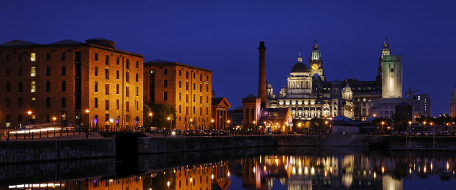Liverpool set to replace street lights with LED lamps
Liverpool set to replace street lights with LED lamps

Thousands of street lights in Liverpool look set to be replaced in a programme which could save millions of pounds for the city.
The city council will consider a recommendation that more than 20,000 of the existing yellow sodium lights, which have concrete columns, be replaced with LED bulbs on steel columns.
Although the scheme will cost in the region of £7m, it is seen as an investment which will ultimately bring significant savings – estimated to be around £2.7m over the first five years.
12,000 of the existing lights would be replaced during 2014/15 with the residential areas of the waterfront being targeted first – an area which has the greatest impact from salt and rain, causing the street lights to have the highest failure rate and generate the highest maintenance costs.
A second phase a year later would involve installing 8,000 LED lights in residential areas and replacing 1380 older lights along key routes in and out of the city.
Each phase is hoped to lead to an 82% reduction in energy consumption – producing savings of over £500,000 per year.
“This is good news in every respect,” said Councillor Tim Moore, cabinet member for transport and climate change. “It means we will have improved lighting levels where we are introducing the new lights, making those areas safer.
“We will be a greener city as the level of CO2 emissions will be significantly reduced and night-time pollution will be cut."
“There will be long-term financial benefits to council taxpayers with energy and maintenance costs being significantly reduced. We will be using capital funding to pay for this programme but we really are investing in the city’s infrastructure to make considerable savings.”
A detailed assessment of the city’s remaining 36,000 street lights will be carried out with a view to them being replaced over a number of years.
If the programme is approved, the first phase is expected to take around eight months to complete.
You can read more about this from Liverpool’s major Joe Anderson in the Liverpool Express, here.


